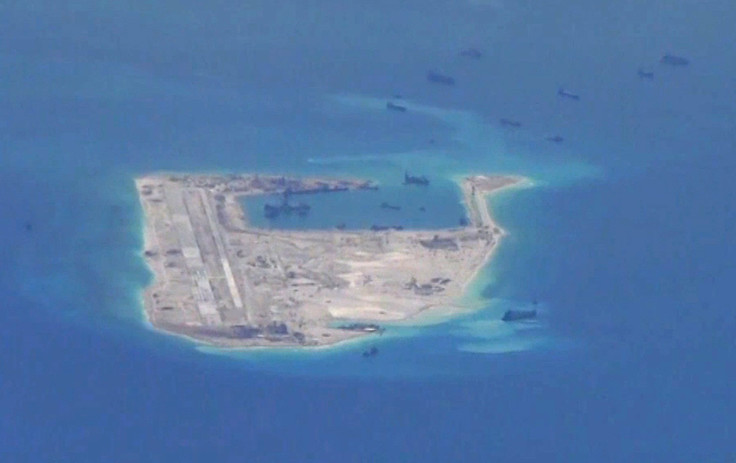South China Sea Controversy: US Sails Warship Near Chinese-Occupied Fiery Cross Reef To ‘Challenge Excessive Maritime Claims’

A U.S. navy warship sailed close to Chinese-occupied Fiery Cross Reef in the South China Sea Tuesday, a U.S. Department of Defense official said. The move comes just days after a senior Chinese diplomat said that international criticism against China over its claim of disputed islands in the South China Sea will rebound like a coiled spring.
Defense Department spokesman Bill Urban reportedly said that the freedom of navigation operation by the USS William P. Lawrence was to "challenge excessive maritime claims of some claimants in the South China Sea." The warship traveled within 12 nautical miles of the Fiery Cross Reef, which includes a 10,000-foot runway.
"These excessive maritime claims are inconsistent with international law as reflected in the Law of the Sea Convention in that they purport to restrict the navigation rights that the United States and all states are entitled to exercise," Urban said in an emailed statement to Reuters. "No claimants were notified prior to the transit, which is consistent with our normal process and international law."
The South China Sea has been long debated, with Beijing laying claim to most of the region. Brunei, Malaysia, the Philippines, Taiwan and Vietnam also have conflicting claims to the waters, through which over $5 trillion of maritime trade passes. China has been expanding its presence in the region and has built three runways on the Spratly archipelago.
The United States has been conducting sea and air patrols near artificial islands that China is constructing in the disputed Spratlys archipelago. The U.S. says its freedom of navigation operations are designed to emphasize that the South China Sea, home to some of the world’s busiest shipping lanes, remains international waters, adding that it would increase the "freedom of navigation" sail-bys around the disputed area.
© Copyright IBTimes 2024. All rights reserved.











